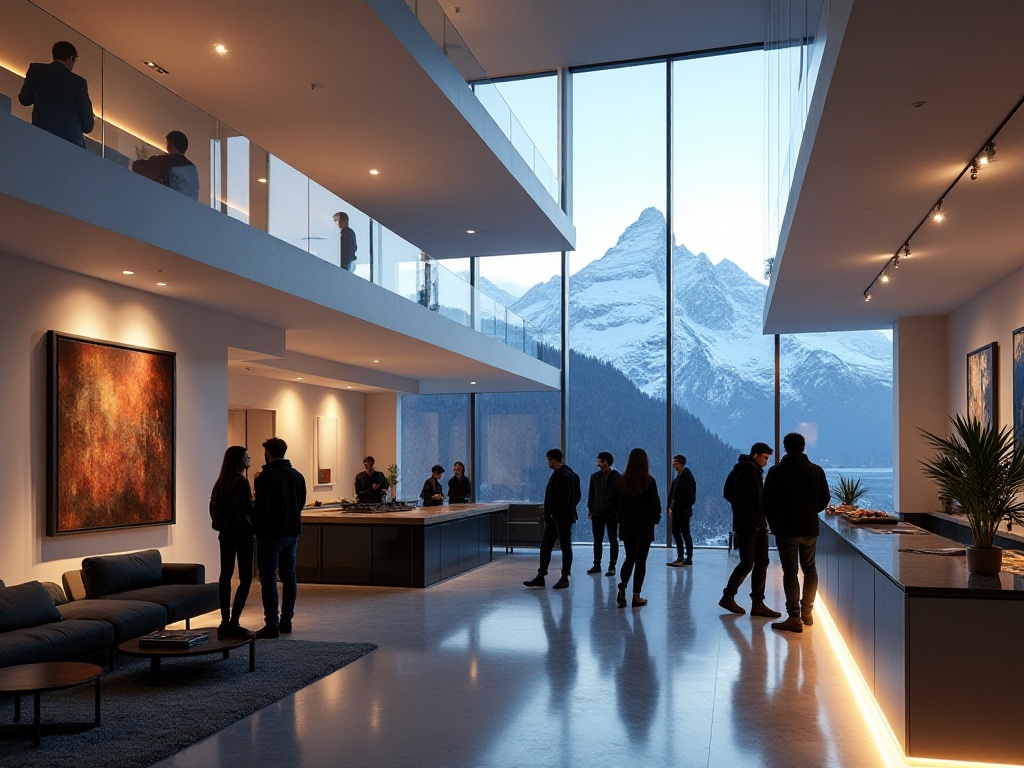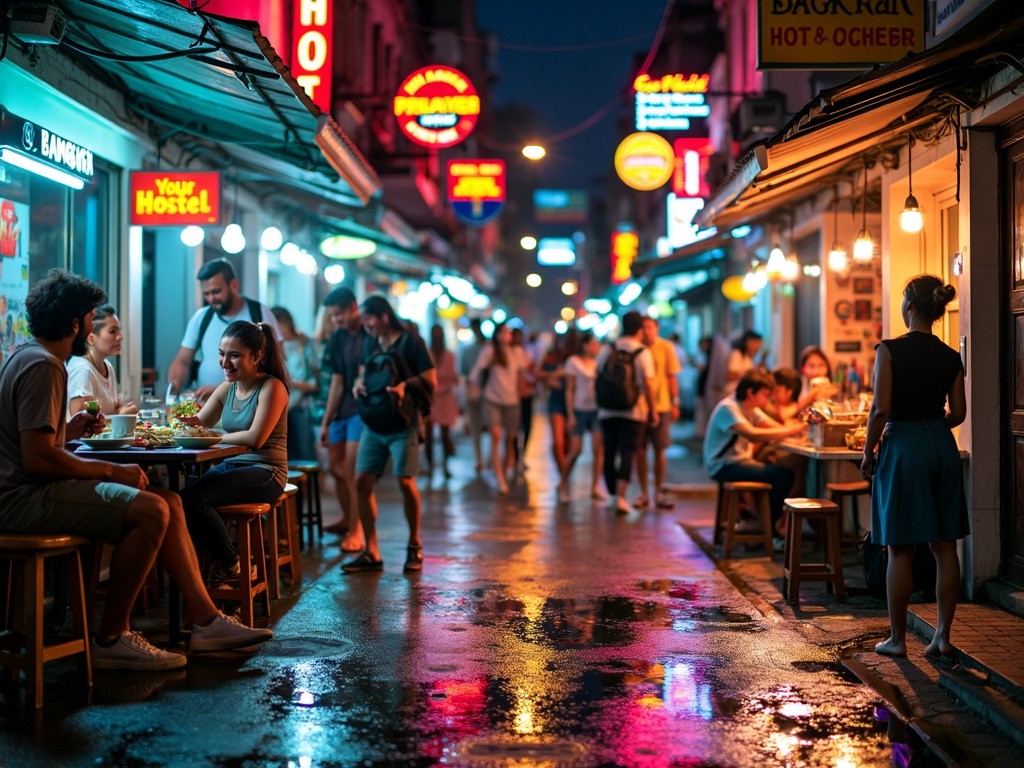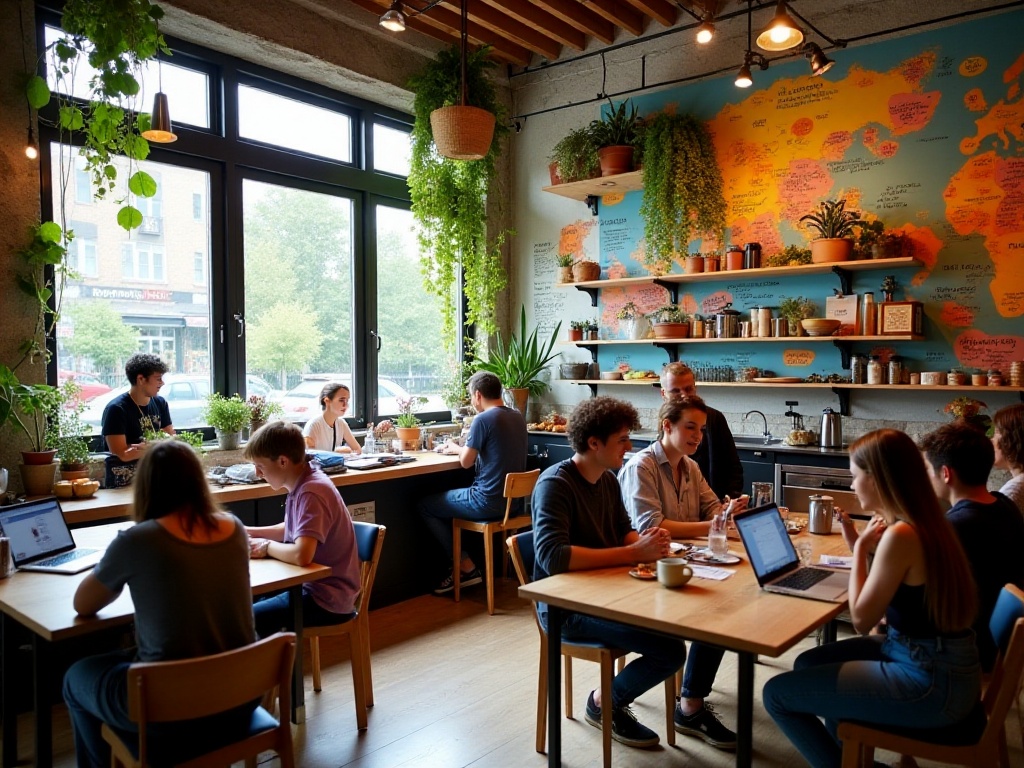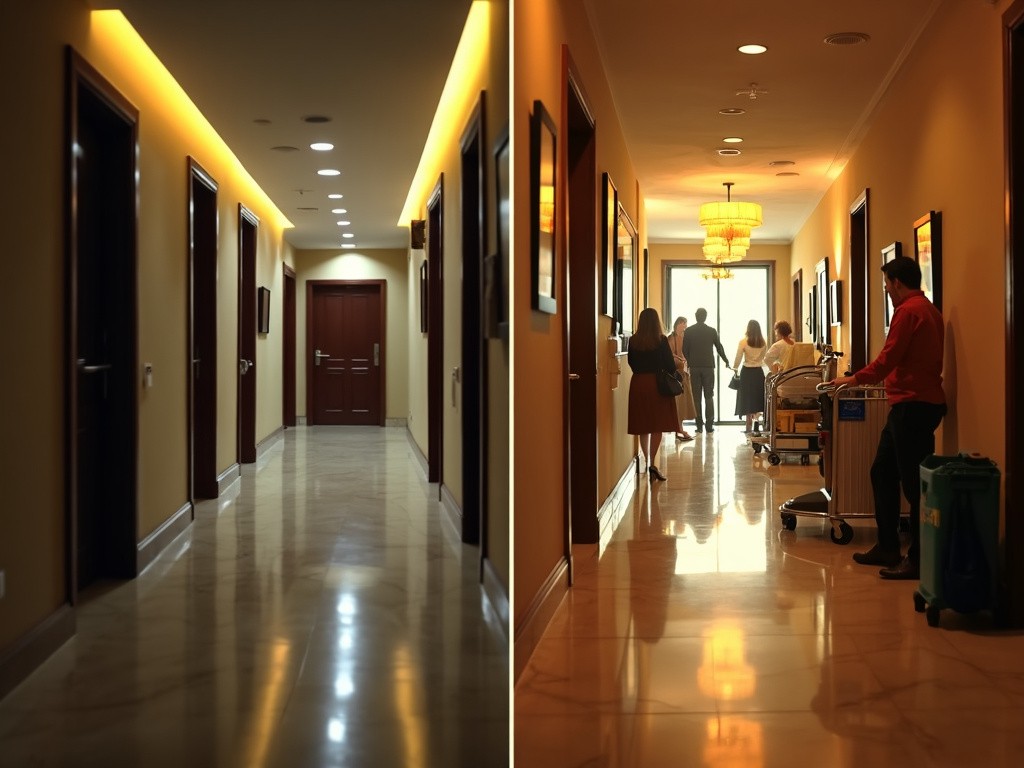
Opening Chat
Hey everyone! Recently my DMs have been exploding with questions about the UK working holiday visa. As someone who has gone through the process personally, I'd like to share my experience and insights with you today. To be honest, I was totally confused when I first applied, searching everywhere for guides and asking friends, even joining several study abroad groups. After much effort, I finally figured out the process. Looking back now, it wasn't that scary - just lots of steps that require patience.
I remember spending nearly a month just preparing the materials because there was so much to consider. From visa applications to packing, from booking flights to arranging accommodation, every step needed careful attention. Looking back now, all this preparation actually made me more excited and eager about the upcoming journey.
Visa Introduction
Speaking of the Tier 5 Youth Mobility Scheme visa, it's a highly valuable visa. It's not just a regular work visa, but more like a life experience ticket for young people. Imagine being able to spend two full years in the UK, a country full of history and culture, working during the day, having drinks with friends at the pub in the evening, and taking train trips to explore nearby towns on weekends.
The visa was designed to let young people experience different lifestyles through work and travel. You can try different jobs here, meet friends from around the world, and participate in various cultural activities. For example, I attended the Edinburgh Festival, which was definitely an unforgettable experience. Throughout August, the city was filled with street performers, back-to-back theater shows, and the whole city was immersed in an artistic atmosphere.

Application Requirements
Regarding the application requirements, they are a bit strict but not particularly difficult to meet. The age requirement is 18-30, which is when we're most energetic and willing to try new things. Honestly, I think this age limit is quite reasonable because we have enough independence at this time while not having too many concerns.
The proof of funds is crucial - you need to maintain £2,530 in your account for 28 days. It's neither a huge amount nor a small sum. I started preparing this money three months in advance. I suggest planning ahead, perhaps saving up regular income, New Year money, or scholarships. I even took several part-time jobs to gather this amount.
Besides these basic conditions, you'll need a passport (valid for at least 6 months) and a criminal record check, among other documents. Special reminder: passport validity is very important. I've seen friends who had to renew their passports before applying for the visa, wasting a lot of time.

Accommodation Arrangements
Accommodation is definitely one of the biggest headaches. When I first arrived in London, I lived in a student apartment in Zone 2. Honestly, although the rent wasn't cheap, it was quite comfortable. The apartment had complete facilities including a gym, communal kitchen, laundry room, and even a game room. Most importantly, it was secure with 24-hour security.
I had a single room, about 15 square meters, with an en-suite bathroom, costing £900 per month. Some might think it's expensive, but this is London! Plus, the rent included utilities, internet, and weekly room cleaning service.
Later, I met some good friends in this apartment, and we found a large house to share. The rent dropped to around £700 per person. Although we had to clean ourselves, having our own living room and kitchen felt pretty good.
When looking for housing, pay attention to several issues: First is location - choose somewhere with convenient transportation for work and travel; Second is safety - choose areas with good security; Third is the contract - carefully read the terms, especially regarding deposits and move-out conditions.

Transportation
In the UK, especially in London, public transportation is really developed. I strongly recommend getting an Oyster card immediately - it's a necessity. The Oyster card can be used on both the tube and buses, and offers much cheaper rates than single tickets.
From my experience, if you live in Zone 2 and commute to the city center for work, weekly transportation costs are around £30-35. If you frequently take the tube, it's recommended to get a monthly pass as it's more economical. I remember the first time I took the tube, I got off at the wrong station and spent extra money, only later learning about the daily spending cap feature of the Oyster card.
Besides daily commuting, trains are the best choice for weekend trips to nearby cities. Booking tickets in advance is much cheaper - I often book through the Trainline app. I remember once going to Cambridge - a ticket booked two weeks in advance was only £15, while it might cost £40 if bought last minute.

Work Experience
Regarding work, there are quite a few job options available. I started as a server at Pret A Manger - though the work was intense, the benefits were good. I got free sandwiches and coffee daily, weekly pay at £11.5 per hour. Most importantly, working there quickly improved my English speaking skills, especially when interacting with customers.
Later, I worked at a chain bookstore, which was more relaxed, paying £12 per hour. The advantage of working at a bookstore was meeting many book lovers and often chatting about books and movies with customers - it felt fulfilling. Plus, the UK workplace atmosphere is generally relaxed, and colleagues get along well.
Some points to note when working: First, don't exceed the working hour limits; Second, always sign a formal employment contract; Finally, be proactive in learning - ask when you don't understand something, British people are usually happy to teach you.

Living Expenses
Honestly, living expenses in the UK are significant, especially in London. From my experience, you need to prepare at least £1,500 monthly for living expenses. Rent takes up a large portion - even sharing costs £700-900. Transportation costs about £150 monthly, which is necessary.
Food can be expensive if you eat out often. A simple lunch in the city center costs at least £8-10. I later learned to cook, shopping at supermarkets on weekends, which kept monthly food expenses around £300. I especially recommend shopping at Lidl or Aldi - prices are much lower.
Regular expenses include phone bills (£15-20 monthly), internet (£10-15 monthly if shared with roommates), gym membership (£20-30 monthly for budget options), etc. Budget some money for weekend activities too - a movie costs £10-15, a night at the pub might cost £30-40.

Practical Advice
From my experience, advance planning is crucial. Start preparing at least 3-4 months ahead. First prepare visa materials according to the checklist. Prepare proof of funds early as it needs to be maintained for 28 days.
Book flights two months in advance for better prices. I chose a night flight - though inconvenient, it saved nearly £1,000. Pack carefully - bring enough winter clothes as UK winters are truly cold.
After arriving in the UK, first get a bank card. I recommend online banks like Monzo or Revolut - account opening is convenient and the apps are user-friendly. Then apply for a National Insurance Number, which you'll need for work.

Concluding Thoughts
These two years of working holiday have helped me grow tremendously. Not just in English proficiency, but more importantly in learning to live independently and interact with people from different cultural backgrounds. Life in the UK has given me a broader understanding of the world.
I experienced many firsts here: first time living alone in a foreign country, first time handling various life matters, first time working abroad. Each experience made me stronger and more mature. Most memorable are the friends I met here from around the world - we built deep friendships through shared experiences.
Looking back now, although there were difficulties and setbacks, this experience was definitely worth it. It's not just travel or work experience, but a rare life experience. So if you're hesitating about applying for a UK working holiday visa, my advice is: go for it, don't hesitate, it might be the most exciting two years of your life!
Finally, if you have any specific questions about the application process, feel free to ask me. Let's plan this exciting life journey together! Remember, opportunities favor the prepared - with thorough preparation, I believe you too can gain unforgettable experiences in the UK.
Next
Budget-Friendly Hostels in Southeast Asia: A Solo Traveler's Guide
Ah, Southeast Asia! The land of vibrant street markets, ancient temples, and pristine beaches. But for the solo traveler, it's so much more – it's a playground of self-discovery, cultural immersion, and unforgettable connections. And at the heart of this solo adventure? Hostels, my friends. These budget-friendly havens are the unsung heroes of the backpacker trail, offering not just a place to rest your head, but a launchpad for epic journeys.
From Hostels to Luxury Hotels: A Backpacker's Global Accommodation Guide
A comprehensive guide to accommodation options, covering traditional hotels, boutique hotels, B&Bs, self-catering units, as well as specialty lodging like mountain cabins, resorts, and alternative options including home exchange and work exchange programs
The Great Escape: Hotels Bask in Summer's Radiant Glow
In a world once silenced by the echoes of empty lobbies and vacant rooms, a new symphony of rolling luggage and excited chatter is rising. The hotel industry, long battered by the storm of a global pandemic, is finally seeing the sun peek through the clouds. As we stand on the precipice of a travel renaissance, local hotels are witnessing a surge in occupancy rates that's nothing short of miraculous.
Next

Budget-Friendly Hostels in Southeast Asia: A Solo Traveler's Guide
Ah, Southeast Asia! The land of vibrant street markets, ancient temples, and pristine beaches. But for the solo traveler, it's so much more – it's a playground of self-discovery, cultural immersion, and unforgettable connections. And at the heart of this solo adventure? Hostels, my friends. These budget-friendly havens are the unsung heroes of the backpacker trail, offering not just a place to rest your head, but a launchpad for epic journeys.

From Hostels to Luxury Hotels: A Backpacker's Global Accommodation Guide
A comprehensive guide to accommodation options, covering traditional hotels, boutique hotels, B&Bs, self-catering units, as well as specialty lodging like mountain cabins, resorts, and alternative options including home exchange and work exchange programs

The Great Escape: Hotels Bask in Summer's Radiant Glow
In a world once silenced by the echoes of empty lobbies and vacant rooms, a new symphony of rolling luggage and excited chatter is rising. The hotel industry, long battered by the storm of a global pandemic, is finally seeing the sun peek through the clouds. As we stand on the precipice of a travel renaissance, local hotels are witnessing a surge in occupancy rates that's nothing short of miraculous.


